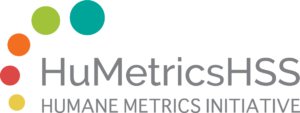
We're thrilled that our flash essay, "The Syllabus as Locus of Intervention and Impact" has been published in a special issue of Syllabus, guest edited by Rebecca Frost Davis, Matthew K. Gold, and Katherine D. Harris (also the editors of the excellent Digital Pedagogy in the Humanities, published by the Modern Language Association). Our essay is a synthesis of much of our thinking on the syllabus, distilled into a 500-word "flash" (or, as the editors put it in their editorial, "a piece of writing that offers brief and pointed challenges to various aspects of the syllabus"). Here's the abstract:
A syllabus is an opportunity for impactful intervention in the marketplace of academic prestige. As a construction site for notions of authority, legitimacy, and power, it proffers an opportunity to build up traditionally underrepresented voices and forms of scholarship and redefine the parameters of the scholarly conversation. As a form of sustained engagement with those voices, it offers a new way to conceive of scholarly impact that goes beyond just another citation.
Agate et al., "Syllabus as Locus" Syllabus 9/1 (2020): Special Issue.
One of the most enjoyable aspects of this experience (aside from the challenge of distilling three years of discussions into 500 words) was the open peer review process, which was exceptionally well-organized, collaborative, formative — and fast:
- October 2019: first drafts of essays to editors
- November 2019: editors respond with an initial round of reviews
- December 2019: authors submit reworked essays
- February 2020: contributors all participate in peer-to-peer review of a number of other essays in the collection
- March 2020: authors submit final essays to editors
- April 2020: editors complete introduction and proofread essays
- May 2020: final, typeset essays due to Syllabus — and publication!
We are deeply grateful to the editors and our co-contributors, and encourage you to check out the other contributions to the volume, which argue for the syllabus as ... manifesto; inclusive practice; chance to show your sources; social contract for restorative justice; shared negotiation; establishing tone; EULA; activist document; handwork; and graphics-based document.
